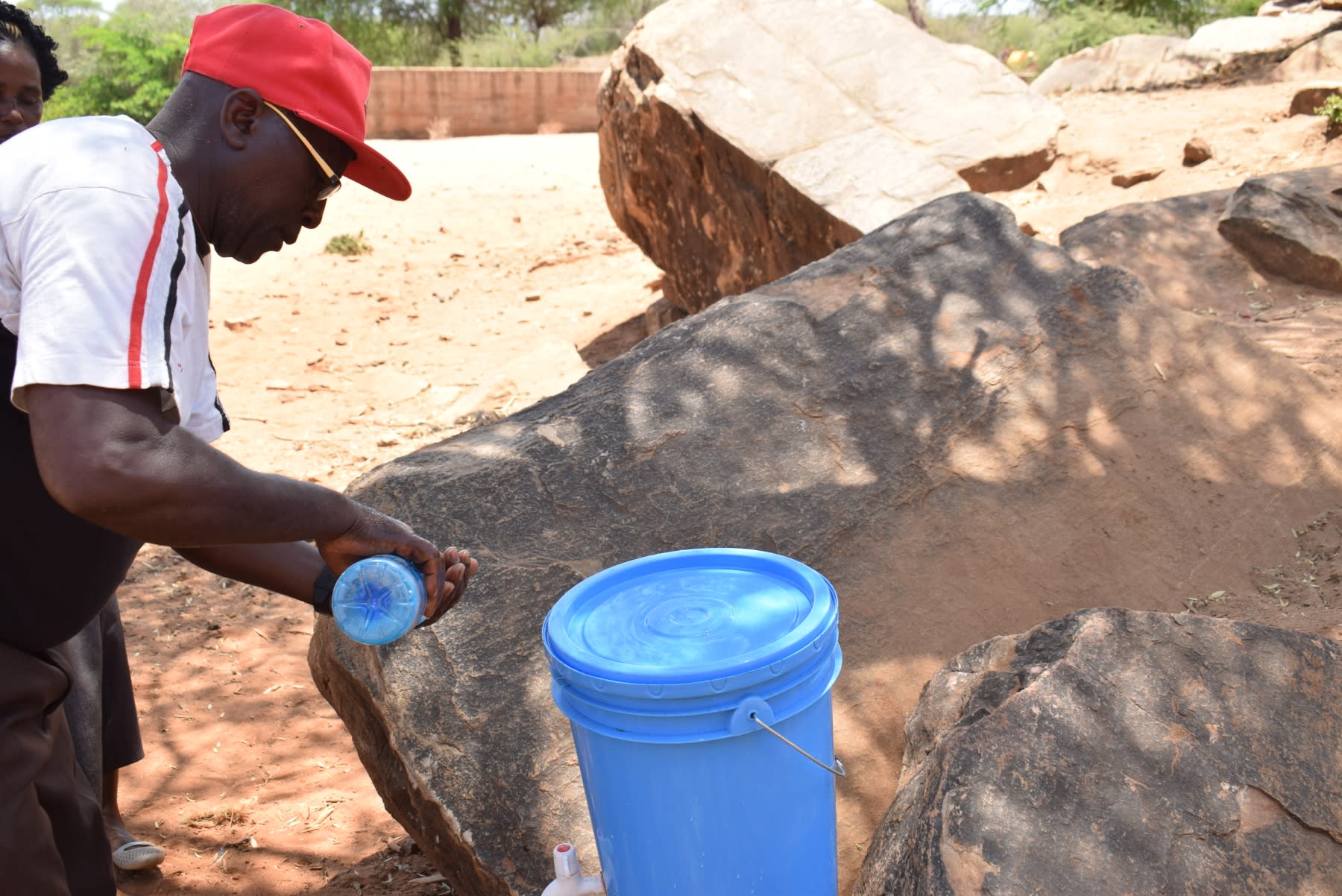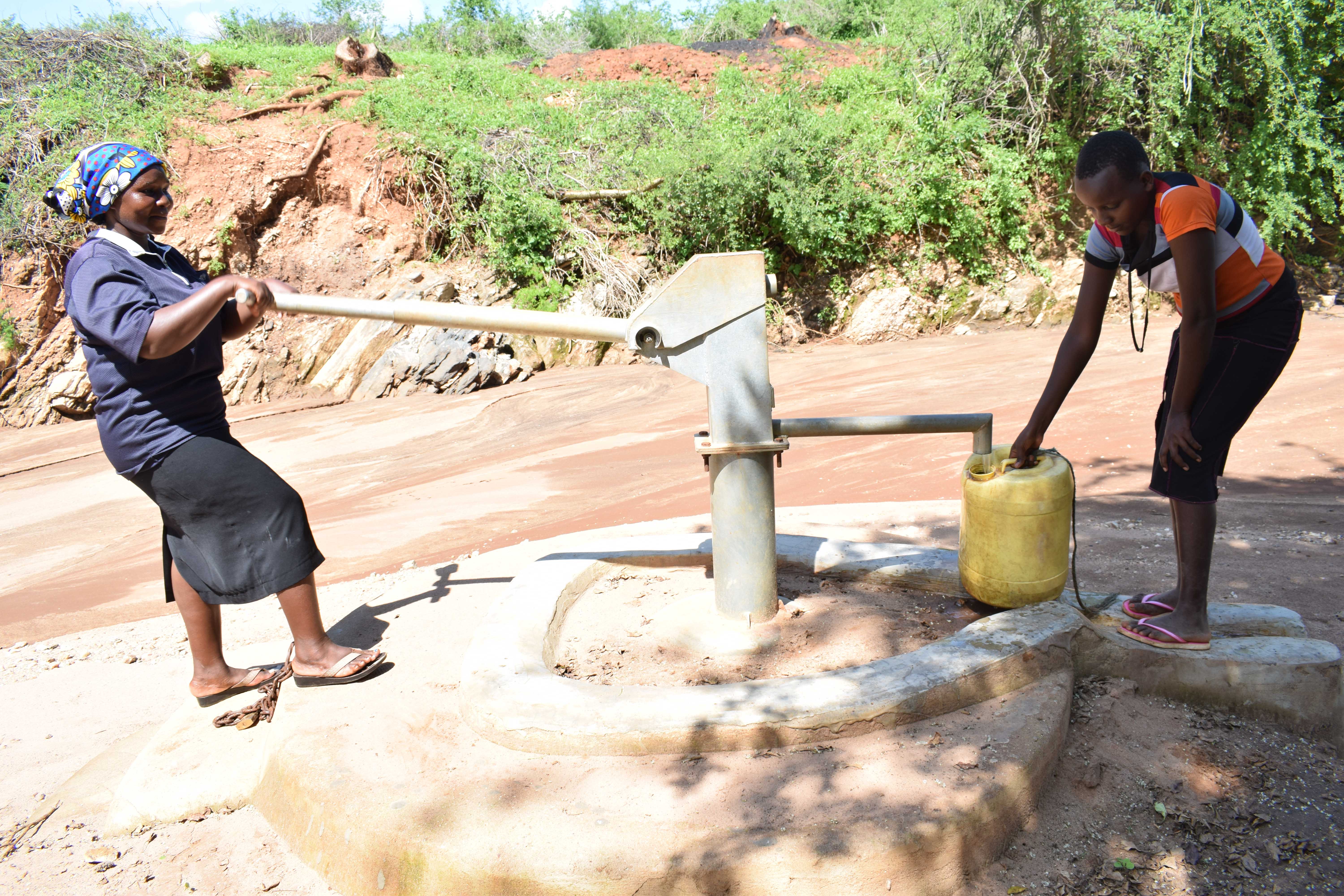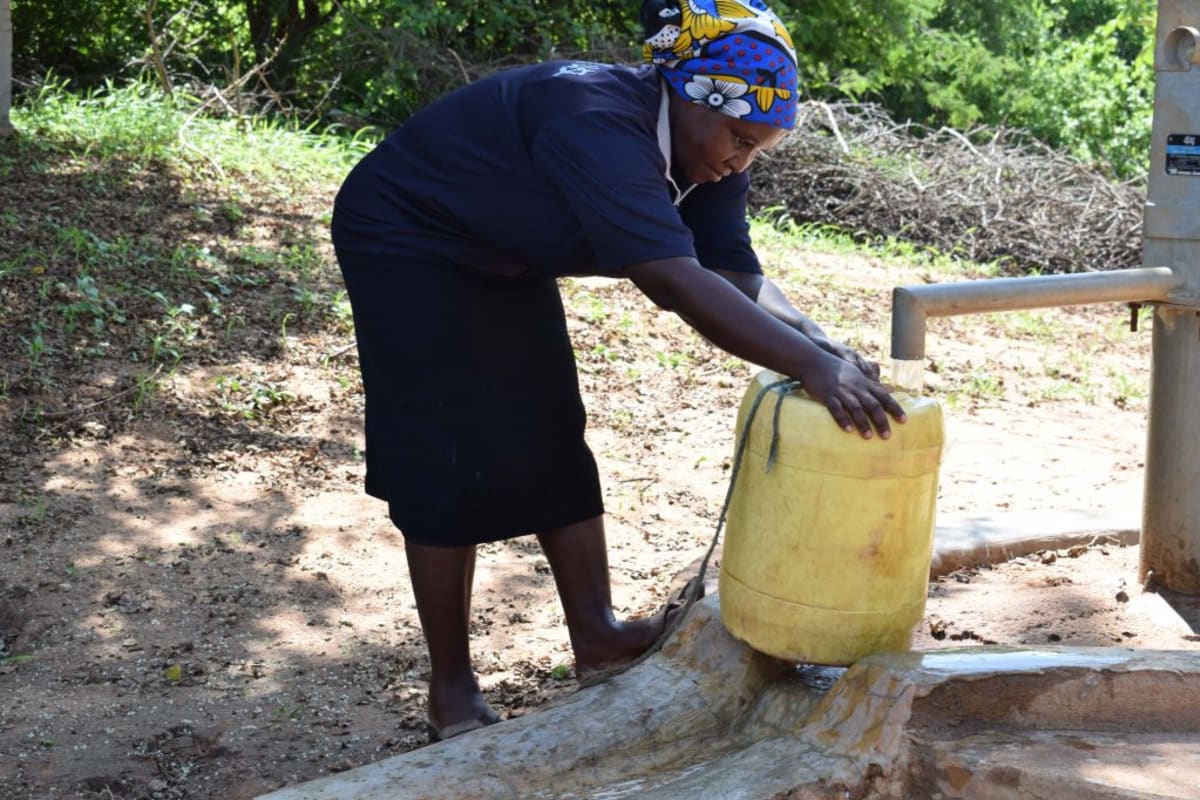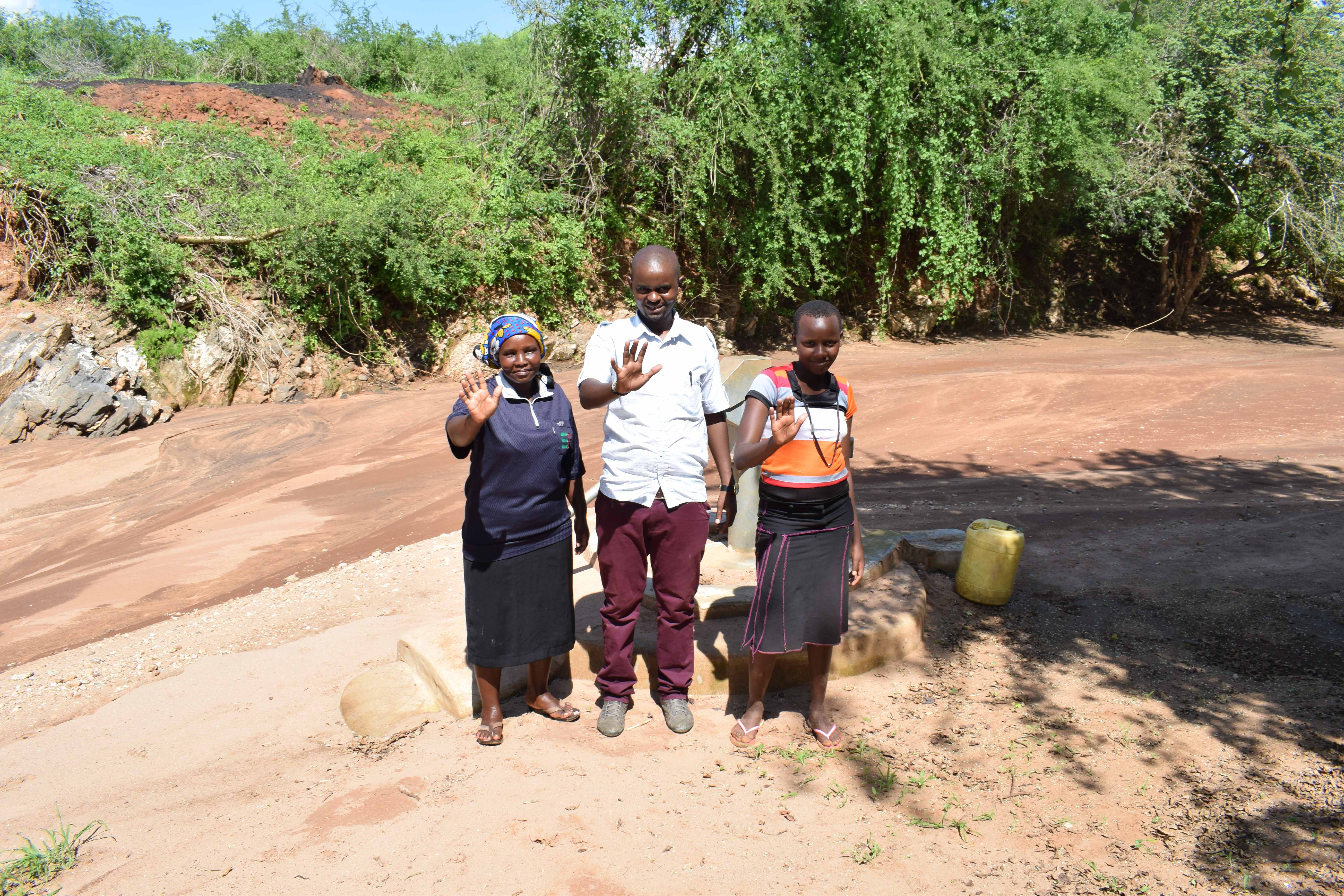Community Snapshot
Wasya wa Athi means "the voice of the Athi." Self-help group members chose this name to represent their struggle with water scarcity; there is so little water in their village that they have to walk 12 kilometers to Athi River. Water quality tests at the river revealed a tremendously high total coliform count. Waterborne disease is a constant experience for all.
There is a seasonal river that runs right through their village, which alleviates the water challenge for a short time after rains. Over the last couple of years, we have worked with the community to build sand dams along this river. The goal is to make water available and accessible year round.
Water is fetched by digging holes alongside this seasonal riverbed, but locals are also using these to water their animals. Scoop hole water is great for cleaning, washing and farming, but not for drinking. Locals are in need of a safe source for drinking water, and a hand-dug well will provide that.
Welcome to the Community
The Wasya wa Athi Self-Help Group lives in Ivinga Nzia Village, Kenya. The village is home to 207 people from 35 different households. The Wasya wa Athi Self-Help Group was formed in September 2010. At the time of formation, there were 34 households with members in the group. The main reasons for forming the group were:
- The group wanted to improve the environment through soil conservation. By coming together the group wanted to dig terraces that would conserve soil on their farms According to them, the lack of terraces had reduced the productivity of their farms, leading to continuous cycles of poor harvests.
- The area had severe water shortage. The lack of water had led to the area remaining behind in terms of development. School attendance was severely affected as children skipped school during the long drought periods to assist parents in fetching water or be left at home taking care of other household chores as the parents went to search for water.
We decided to partner with this group because we share their goal to address water scarcity and bring solutions to the community. Since the beginning of our relationship, we have built several sand dams on the local seasonal river, Kyangwasi.
Water Situation
As the sand dams on River Kyangwasi mature, more water is available nearby. The more water at Kyangwasi, the less women and children have to make the long trek to River Athi. This is wonderful news, since River Athi is not only dangerous because of its contaminated water, but also because of its crocodiles! Farmer Rose Kithae said "We have faced a big challenge. Some have also lost their family members through crocodile attacks from River Athi. We hope that the shallow well [at Kyangwasi River] will reduce the number of people who still have to go to River Athi which is also far from our homes."
To get water from the nearby sand dams, locals dig shallow holes to access water built up in the riverbed. They bring plastic 20-liter jerrycans to that are later dumped into plastic reservoirs at home. The more reservoirs a family can afford, the less trips they have to make to the scoop holes.
Problems with water quality are developing at the Kyangwasi scoop holes, though. These are open to contamination and are overused by both animals and humans. People are in need of their own protected source of safe drinking water.
Sanitation Situation
Through our partnership with Wasya wa Athi, we've been able to encourage families to build sanitation facilities. Now, every single household has their own pit latrine. However, many of them need to be kept cleaner and should have covers to keep flies away. Over half of homes still need to regularly practice hand-washing to prevent disease.
Plans: Hygiene and Sanitation Training
Hygiene and sanitation training will be held on two consecutive days, scheduled for when most appropriate for community members. We wouldn't want to schedule training on harvesting or market days!
After our training facilitators visited the community, they decided to focus on encouraging full community participation in hygiene campaigns. We've spent time planning a schedule for improvements to be made here, and we'd like to help families realize those improvements. For example, the community agreed that each household should have a pit latrine and hand-washing station. While every home now has their own pit latrine, there is still a large handful of families that don't practice regular hand-washing. Implementing these household improvements will help ensure that clean drinking water is kept that way.
Plans: Hand-Dug Well
This hand-dug well will be adjacent to the sand dam with all of the scoop holes. Having a well will provide families with a safe and accessible clean drinking water source. Scoop holes can be kept for agricultural, domestic, and animal purposes.
The adjacent sand dam has already matured and raised the water table. This water table will ensure that there is always enough water to be pumped from the well.
Construction is expected to take around two months, with the well being lined with concrete and finished with an AfriDev pump. A pump system will protect the water inside from the same surface runoff contamination the open scoop holes are subject to.
Better Days Ahead
The name of the village, Ivinga Azia, means "closed roads," or "end of the road." The name was given to signify how hopeless and desperate the founders of the village were. They had suffered years of having no access to water. At that time, the only water point was River Athi, which was heavily polluted and infested with crocodiles.When walking across town, you would always see a person with a limb missing. The self-help group was formed to create lasting solutions to the perennial water shortage. Through its engagement with ASDF, the group set a clear goal to build sand dams along the River Kyangwasi, a seasonal nearby alternative to Athi. "We don't want anyone else to die from crocodile attacks at river Athi," said Wanza, a member of the group. "Our children deserve better." That was the story of the community at the start of our relationship years ago.
Exactly four years ago, a boy named Kisomo was born. Kisomo means "education." The boy was given that name after the group finished building their first sand dam. For the father, the dam was not only a solution to the water problem but also an opportunity to give his children a better education. "I now know my boy will be in school always! This is because water is not going to be a problem any more to this community," explained Mutinda, Kisomo's father. "The time we used to waste sending our children to fetch water instead of going to school will be invested in books. I am happy our efforts have opened doors for many children to go to school in clean uniforms. The days ahead will be better for this village."

 Protected Dug Well
Protected Dug Well
 Rehabilitation Project
Rehabilitation Project
































